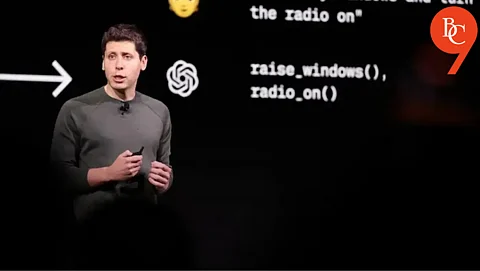

The battle for artificial intelligence supremacy has reached new heights as OpenAI CEO Sam Altman publicly accused Meta of trying to poach his company’s top talent with jaw-dropping $100 million signing bonuses and promises of even larger annual compensation. This revelation, made during a recent episode of the “Uncapped” podcast, underscores the intensifying competition among tech giants to secure the world’s most elite AI researchers.
Meta, the parent company of Facebook, Instagram, and WhatsApp, has launched an unprecedented campaign to attract AI talent, especially from OpenAI, which is widely regarded as a leader in the field thanks to its breakthroughs like ChatGPT. According to Altman, Meta’s offers include $100 million signing bonuses and even more in annual compensation, a level of pay typically reserved for superstar athletes or top Wall Street executives.
Meta’s aggressive push comes as it seeks to close the gap in the AI race. The company recently invested $14–15 billion for a 49% stake in Scale AI, a data-labeling startup, and appointed Scale’s founder, Alexandr Wang, to lead a new “superintelligence” team at Meta. Mark Zuckerberg himself is reportedly personally involved in recruiting efforts, signaling just how high the stakes have become.
Despite these extraordinary offers, Altman said that “at least so far, none of our best people have decided to take them up on that”. He attributes this loyalty not just to competitive compensation at OpenAI, but to the company’s culture, mission, and belief in its ability to deliver on the promise of superintelligenc. “People sort of look at the two paths and say, ‘Alright, OpenAI's got a really good shot—a much better shot, actually—at delivering on superintelligence and also may eventually be the more valuable company,’” Altman remarked.
Altman also questioned whether Meta’s strategy of offering massive upfront compensation would foster the kind of innovative culture needed for long-term AI breakthroughs. He suggested that OpenAI’s mission-driven environment and focus on advancing artificial general intelligence (AGI) are proving more attractive than even the most lucrative offers.
The global pool of experts capable of building and scaling frontier AI models is extremely limited—perhaps only a few hundred to a few thousand worldwide. As a result, compensation packages have soared, and the competition for these individuals has become as fierce as free agency in professional sports. Meta and other tech giants are willing to spend billions to secure the brightest minds, knowing that AI leadership could define the next era of technology.
Meta’s failed attempt to lure OpenAI’s top researchers highlights both the intensity of the current AI talent war and the importance of company culture and vision in retaining elite employees. While Meta’s financial muscle is undeniable, OpenAI’s ability to keep its best minds signals confidence in its mission and future prospects.
